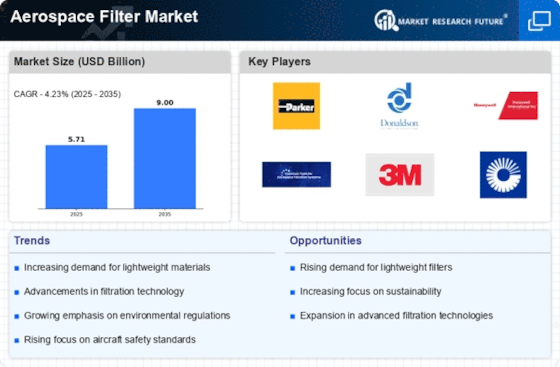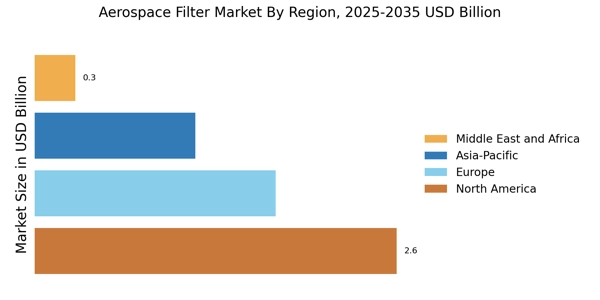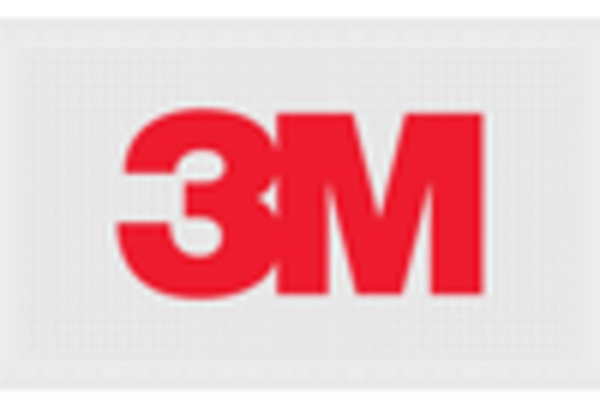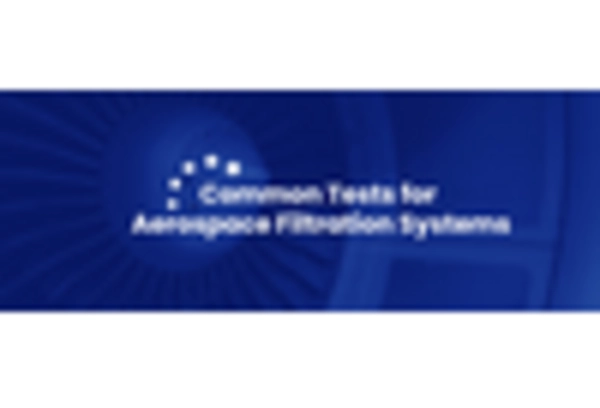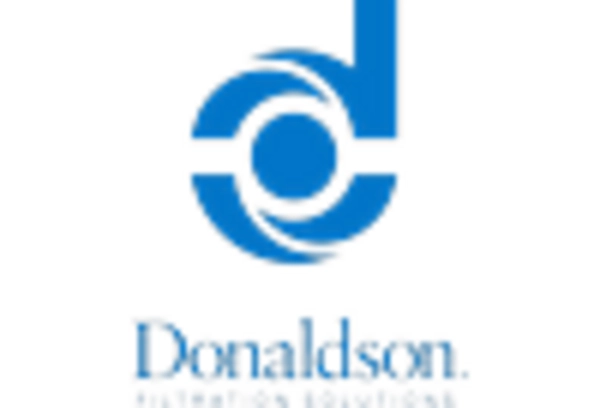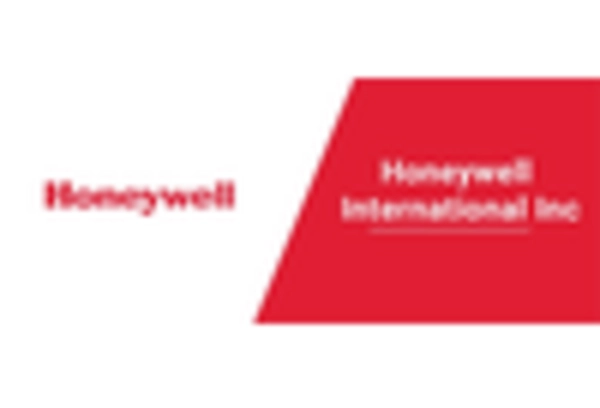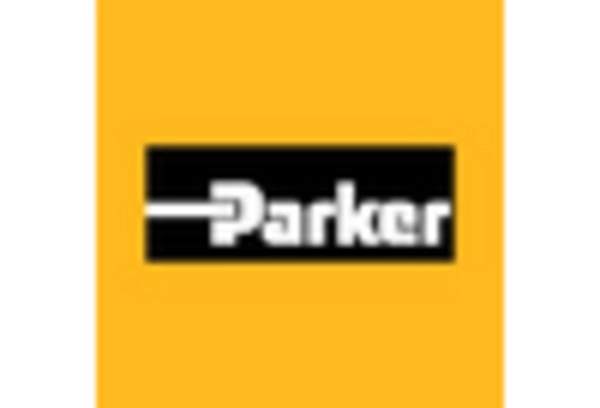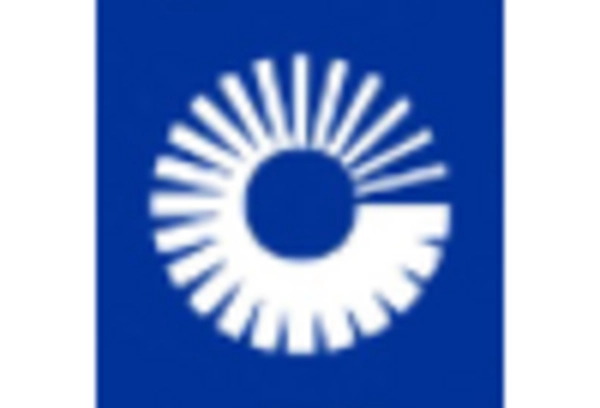Increasing Demand for Aircraft
The aerospace filter Market is experiencing a notable surge in demand for aircraft, driven by the expansion of air travel and the need for efficient transportation solutions. As airlines and private operators seek to enhance their fleets, the requirement for high-performance filters becomes paramount. Filters play a critical role in ensuring the safety and reliability of aircraft systems, particularly in maintaining air quality and protecting sensitive components. According to industry estimates, the number of commercial aircraft is projected to increase significantly over the next decade, which will likely propel the demand for advanced filtration solutions. This trend indicates a robust growth trajectory for the Aerospace Filter Market, as manufacturers strive to meet the evolving needs of the aviation sector.
Growth in Military Aviation Sector
The Aerospace Filter Market is poised for growth due to the increasing investments in the military aviation sector. Governments worldwide are enhancing their defense capabilities, leading to a rise in the procurement of military aircraft and associated systems. This growth is accompanied by a heightened demand for specialized filtration solutions that can withstand the rigorous conditions of military operations. Filters used in military applications must meet stringent performance criteria, ensuring reliability in extreme environments. As defense budgets expand, the Aerospace Filter Market is likely to see a corresponding increase in demand for high-performance filters tailored to the unique needs of military aviation.
Regulatory Standards and Compliance
The Aerospace Filter Market is significantly influenced by stringent regulatory standards and compliance requirements imposed by aviation authorities. These regulations are designed to ensure the safety and reliability of aircraft operations, necessitating the use of high-quality filtration systems. Compliance with these standards often requires manufacturers to invest in research and development to create filters that meet or exceed regulatory expectations. As the industry evolves, the Aerospace Filter Market must adapt to new regulations, which may include enhanced testing protocols and performance benchmarks. This dynamic environment presents both challenges and opportunities for filter manufacturers, as they strive to align their products with the latest compliance mandates.
Focus on Environmental Sustainability
The Aerospace Filter Market is increasingly aligning with environmental sustainability initiatives, as the aviation sector seeks to reduce its ecological footprint. This focus on sustainability is driving the demand for filters that not only perform effectively but also minimize environmental impact. Manufacturers are exploring eco-friendly materials and production processes, which could lead to the development of biodegradable or recyclable filters. Additionally, the push for more fuel-efficient aircraft is likely to enhance the demand for advanced filtration systems that contribute to lower emissions. As sustainability becomes a core value in the aerospace industry, the Aerospace Filter Market is expected to evolve, reflecting these changing priorities.
Technological Innovations in Filtration
Technological advancements are reshaping the Aerospace Filter Market, with innovations leading to the development of more efficient and effective filtration systems. New materials and designs are being introduced, enhancing the performance of filters in various applications, including cabin air, fuel, and hydraulic systems. For instance, the integration of nanotechnology in filter media has shown promise in improving filtration efficiency while reducing weight. This is particularly relevant as the aerospace sector increasingly prioritizes weight reduction to enhance fuel efficiency. The Aerospace Filter Market is likely to benefit from these innovations, as manufacturers adopt cutting-edge technologies to meet stringent performance standards and regulatory requirements.


